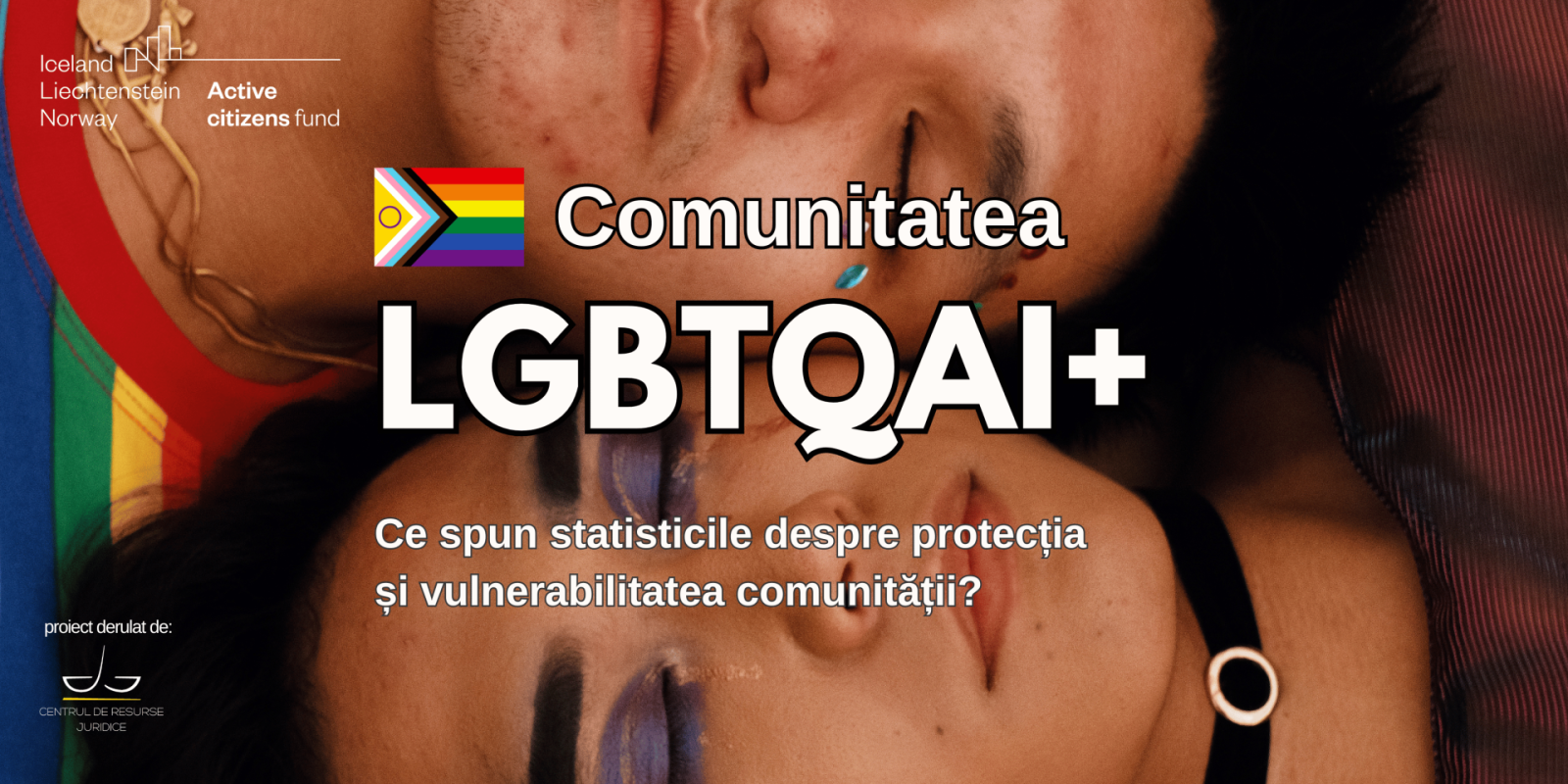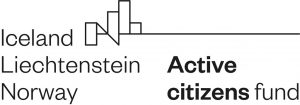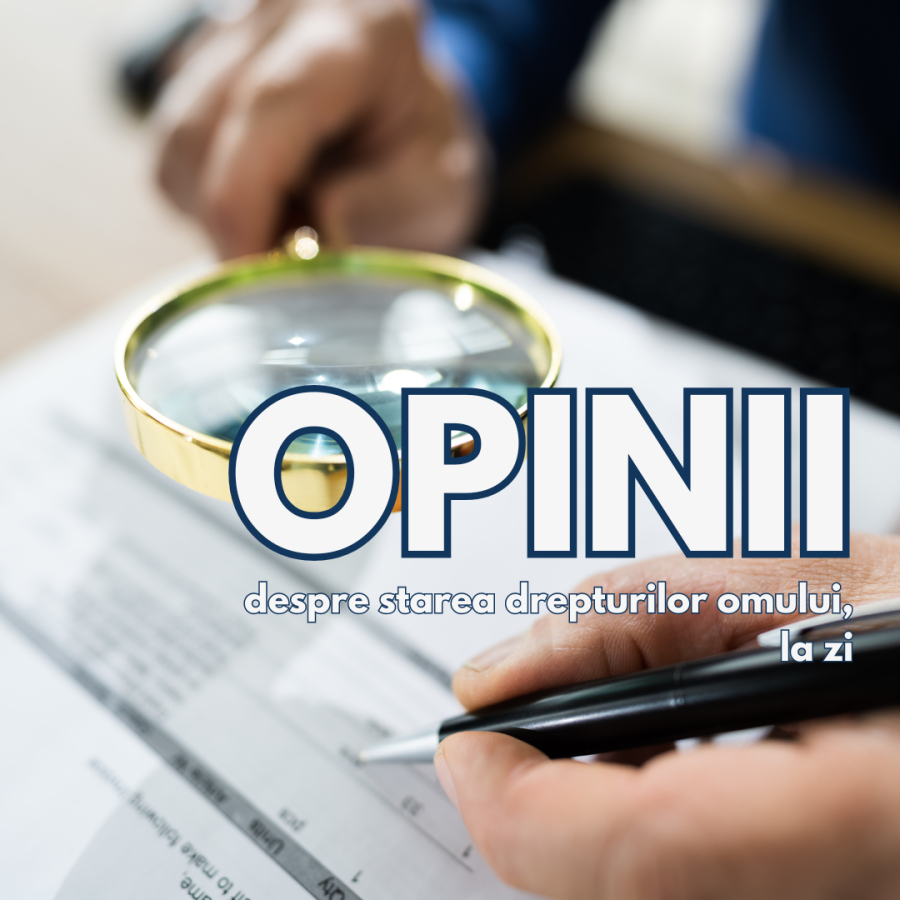As early as 2020, the President of the European Commission announced in her State of the Union speech to the European Parliament an initiative to extend the list of EU crimes to all forms of hate crime and hate speech – whether motivated by race, religion, gender or sexual orientation. The legislative process, which has been blocked in the Council of the EU since 2022, is expected to be completed this year[1].
The initiative was based on the significant EU-wide increase in discrimination, hate crime and hate speech against LGBTQAI+ as well as other groups of people, but also on the scale of the phenomenon, its negative impact and its cross-border nature[2].
The situation in Romania
The LGBTQAI+ community is one of the groups most exposed to hate speech and hate crime in Romania, alongside the Roma community. According to a report by the European Union Agency for Fundamental Rights (FRA)[3], based on an extensive survey of all EU countries, 82% of LGBTQAI+ people in our country are afraid to express their affection in public, in order to avoid being the victim of aggression[4]. This information is confirmed by a report published by the MozaiQ Association in 2022, which shows that 33,42% of LGBTQAI+ people participating in the survey have had contact with at least one university professor who often uses hostile discourse towards people from this community[5], and one of the respondents stated that his university “does not provide safe spaces for people from the community”[6]. At the same time, the experience of trans people in Romania shows that almost half (48%) have had negative experiences at work associated with their gender identity[7].
Studies conclude that only an extremely small percentage of cases of abuse or discrimination are reported to the relevant authorities: 11% at EU level and 8% in Romania[8]. The main reasons for not reporting cases at EU level are related to the lack of confidence that it would make a difference (41%), lack of confidence that the incident would be taken seriously (22%), lack of trust in public authorities (21%), reluctance to disclose their sexual orientation or gender identity (22%) and lack of knowledge of reporting procedures (15%)[9].
The de facto situation regarding violations of LGBTQAI+ people’s rights, such as discrimination or hate speech, plays an important role in terms of visibility and effective access to rights[10], as shown by the FRA study, according to which 53% of LGBTQAI+ people in Romania (almost) never express their belonging to this group, and 23% rarely express this identity.
The number of sanctions applied for incitement to hatred or discrimination is extremely low in Romania, and data collection on them is poor.
Recommendations for improving the protection of the LGBTQAI+ community at national level
Several non-governmental organisations, including the Centre for Legal Resources, have recently made recommendations for improving the protection of LGBTQAI+ people against hate speech and hate crime, including the following:
- the inclusion of gender identity among the criteria protected by the Criminal Code[11];
- harmonising anti-discrimination legislation and providing a clear definition of hate speech, delineating the competences of public authorities more clearly and developing procedures for individualising fines in such cases[12];
- maintaining a “legislative stability”, particularly in the criminal law field[13];
- correlating the statistical indexing of hate crimes of the Romanian Police, the Public Ministry and the Ministry of Justice[14];
- training the staff of the Romanian Police, prosecutors’ offices, courts, CNA, CNCD, lawyers on hate crimes and hate speech[15] and on sexual orientation and gender identity[16];
- implementing the ECtHR decision in M.C. and A.C. v. Romania and collecting disaggregated data on hate crimes;[17]
- establishing clear sanctions for relevant public authority staff who commit acts of abuse or violence against LGBT+ persons[18].
Material created within the project Human Rights Situation, Up to Date, with the financial support of Active Citizens Fund Romania, programme funded by Iceland, Liechtenstein and Norway through the EEA Grants Grants 2014-2021. The content of this material does not necessarily reflect the official position of the EEA and Norway Grants 2014-2021; for more information visit www.eeagrants.org. More details about Active Citizens Fund Romania are available at www.activecitizensfund.ro.
[1] See the legislative process to date at www.europarl.europa.eu/legislative-train/theme-a-new-push-for-european-democracy/file-hate-crimes-and-hate-speech [2] See Communication from the Commission to the European Parliament and the Council: A more inclusive and protective Europe: including hate speech and hate crime in the EU list of criminal offences of 9.12.2023, https://eur-lex.europa.eu/legal-content/RO/TXT/HTML/?uri=CELEX:52021DC0777&from=NL#footnote3 and the studies on which it is based. [3] FRA, A long way to go for LGBTI equality, 2020, https://fra.europa.eu/sites/default/files/fra_uploads/fra-2020-lgbti-equality_en.pdf. [4] https://fra.europa.eu/sites/default/files/fra_uploads/fra-2020-lgbti-equality_en.pdf p. 26 [5] MozaiQ, Campus Pride National Report: LGBTQIA+ experiences in Romanian universities, available in Romanian, www.mozaiqlgbt.ro/wp-content/uploads/2022/10/Raportul-National-Campus-Pride_compressed.pdf p. 16 [6] MozaiQ, National Campus Pride Report LGBTQIA+ Experiences in Romanian Universities, available in Romanian, www.mozaiqlgbt.ro/wp-content/uploads/2022/10/Raportul-National-Campus-Pride_compressed.pdf p. 19 [7] MozaiQ, Trans on the Labour Market in Romania A national report on the career paths, employability and workplace experiences of transgender, non-binary and intersex Romanians trans_on_the_labour_martket_in_romania.pdf (mozaiqlgbt.ro) p. 86. [8] https://fra.europa.eu/sites/default/files/fra_uploads/fra-2020-lgbti-equality_en.pdf p. 36. [9] https://fra.europa.eu/sites/default/files/fra_uploads/fra-2020-lgbti-equality_en.pdf p. 37. [10] Ipsos Pride 2023 survey: 9% of adults in Romania and globally identify as LGBT+, available in Romanian, www.ipsos.com/ro-ro/studiu-ipsos-pride-2023-atat-romania-cat-si-la-nivel-global-9-dintre-adulti-se-identifica-drept-LGBT [11] Centre for Legal Resources Study, István Haller, 2021-2022: Hate Crimes and Hate Speech, Situation in Romania, www.crj.ro/wp-content/uploads/2023/02/Raport-Infractiuni-motivate-de-ura-2021-2022_feb23-1.pdf, p. 105. [12] Idem. [13] Idem. [14] Idem. [15] Idem. [16] www.mozaiqlgbt.ro/wp-content/uploads/2023/10/INDEXUL-EGALITATII.-Revendicarile-politice-ale-comunitatii-LGBT-din-Romania.pdf pg. 21. [17] www.mozaiqlgbt.ro/wp-content/uploads/2023/10/INDEXUL-EGALITATII.-Revendicarile-politice-ale-comunitatii-LGBT-din-Romania.pdf pg. 21. [18] Idem.


